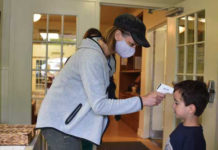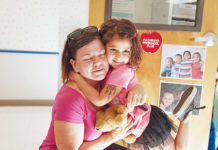
Free play teaches kids to work in groups and be creative, skills of utmost importance to kids\’ development. Overscheduling kids increases their stress levels.
On a rare morning when she had time for a break, Jenny took a big sip of her coffee and sighed. The expensive Barbie doll she had bought for her daughter Emma had been sitting unused in the closet ever since she unwrapped it.
“Emma really wanted that doll,” Jenny complained, “but she’s only played with it half a dozen times.”
Jenny’s sister delicately replied, “When has she had the time? You have almost every moment of her life scheduled for her.” Jenny paused. It was true. She had enrolled her young daughter in baseball, basketball, an after-school club, and ballet lessons.
Best of Intentions
Like so many parents, Jenny wanted her daughter to be well-rounded, to get a feel for the arts and for sports, to have as many diverse experiences as possible. She wanted Emma to have all the opportunities that she missed out on herself as a child. Besides, she thought, it was better for Emma to be out and about than to be tempted to sit in front of the TV.
But Jenny also didn’t realize that filling in every available block of Emma’s time could be doing more harm than good. In her quest to provide Emma with the perfect childhood, Jenny was glossing over one of its most basic and crucial facets: play.
The world has changed dramatically since the good old days, when kids spent more time in playgrounds than huddled up indoors with video games. Yet while the pace of kids’ lives has quickened to keep up with adult-driven, modern-day demands, more and more people–parents and professionals alike–are worried that free, unstructured play is being neglected, to our children’s detriment.
A Universal Right
Gillian McNamee, director of teacher education at Chicago’s Erikson Institute, a graduate school in child development, describes playing as one of the four pillars of a child’s health, alongside eating, sleeping, and toileting. The United Nations High Commission for Human Rights has declared play to be a right of every child. Stuart Brown, a former psychiatrist who founded the California-based National Institute for Play, which aims to bring the knowledge and benefits of play into public life, says that when it comes to learning and memory, play is as fundamental as sleep and dreams.
To put things in perspective, North Americans are blessed to be even contemplating the place of fun and games in society. So many other nations offer proof that it’s not a hurried lifestyle that gets in the way of play but far more sinister factors, such as war, violence, child labour, prostitution, and poverty.
But back on home turf, kids in Canada and the United States are often not getting the full benefits of free play, because it’s frequently considered not as important–or at least not as vital–as more worthy pursuits, such as academics. With North American children scoring lower grades in subjects such as science than pupils in other countries, many schools have shortened free-play periods or recess to make more time for reading and math. And with fierce competition facing hopeful university students, many parents feel that their young kids should be picking up pencils instead of sticks, building their resume\’ instead of tree forts.
Importance of Play
The fact that play is so often brushed aside is ironic given that such authoritative bodies as the American Academy of Pediatrics (AAP) recognize its importance. “Play is essential to development because it contributes to the cognitive, physical, social, and emotional well-being of children and youth,” the organization states in a 2007 clinical report called “The Importance of Play in Promoting Healthy Child Development and Maintaining Strong Parent-Child Bonds.”
The AAP explains that free play enables kids to learn to work in groups, resolve conflicts, use their creativity, become leaders, and create a world they can master, conquering their fears while practising adult roles. Through play, less verbal kids have the opportunity to express themselves in alternative ways. Play also boosts kids’ physical activity levels, an urgent need given today’s staggering rates of childhood obesity. Read alive’s interview with Silken Laumann on page 106 to discover how her Active Kids Movement is combatting this problem.
Current research into play is zeroing in on its role in neurological growth and development. A study by neuroscientist Sergio Pellis found a link between play deprivation and neurological weaknesses. Rats raised in a play-deprived environment had a more immature pattern of neuronal connections in the medial prefrontal cortex than rodents that were able to frolic.
Scientific findings aside, the AAP makes one straightforward point: “Perhaps above all, play is a simple joy that is a cherished part of childhood.”
Sensory Overload
So why do so many parents feel the need to fill their kids’ calendars? One explanation is the pressure they face to expose their children to multiple activities. Flip through any parenting magazine, and there are ads for classes in swimming, tumbling, dancing, gymnastics, music, and painting, many geared to babies as young as six months.
Then there are educational toys, DVDs, and computer games that promise to tap into certain parts of kids’ brains, ensuring optimal development. With so many “intelligent” products out there, the message to parents is that they had better get their kids stimulated early on if their children are going to develop unique skills, talents, and interests. First-time parents are especially prone to comparing their progeny’s progress to that of others and tend to worry their kids aren’t picking things up as quickly as they should.
The AAP describes the pressure moms and dads face: “It is left to parents to judge appropriate levels of involvement, but many parents seem to feel as though they are running on a treadmill to keep up yet dare not slow their pace for fear their children will fall behind.”
A Healthy Balance
Clearly, activities such as swimming and painting have tremendous value; they are fun and beneficial to kids. No one’s saying there isn’t a place for structured classes and events. Many children thrive with one or more regular commitments. But others react to a busy schedule with anxiety and stress. Even those who enjoy having a lot on the go need time for free play, time to fire up their imaginations instead of their computers.
Jackie Bernard chose downtime over a busy time for her daughter Antonia, who’s now 11. When she was a toddler, Antonia started out taking swimming and gymnastics then moved on to team sports.
“We enrolled her in soccer when she was four,” Bernard says in a phone interview from her Calgary home. “She hated it. It was at 6:15 pm twice a week. It was a huge rush. Nobody ate dinner. She was too young to know there was a game going on. It definitely left an impression. To this day she has no interest in soccer.”
Bernard says that after that experience, she made sure that she didn’t schedule things that caused more stress than pleasure for the whole family. She went on to enroll Antonia in various activities over the years, but never more than one at a time.
“I talk to plenty of parents who are doing lots of running around; they’re exhausted,” she says. “We know parents who are run ragged. Where’s the balance? What value are you adding to your kid’s life, and to your own life?”
Freedom Versus Structure
Linda Rose-Krasnor, a psychology professor at Brock University who specializes in child and youth development, says that one of the challenges of modern-day parenting is determining how much free versus structured play a child should have. “Parents need to watch their children, know their children, and recognize when their children are stressed,” Rose-Krasnor told alive in a phone interview. “For some, one activity a week is more than they can handle; others are comfortable with a couple. You also need to look at the quality of the activity. Some parents just drop their kids off and don’t really know what the experience is like. Maybe the activity doesn’t suit the child’s temperament or personality.”
Time to Bond
Another benefit of play is the bonding that can ensue when parents join their kids. Adults get to see the world from their children’s perspective while conveying that they’re paying attention to them.
“It’s a wonderful, valuable, positive time for parents and their kids,” Rose-Krasnor says.
In a world desperate for more time, playtime’s clearly not a waste of time.





























